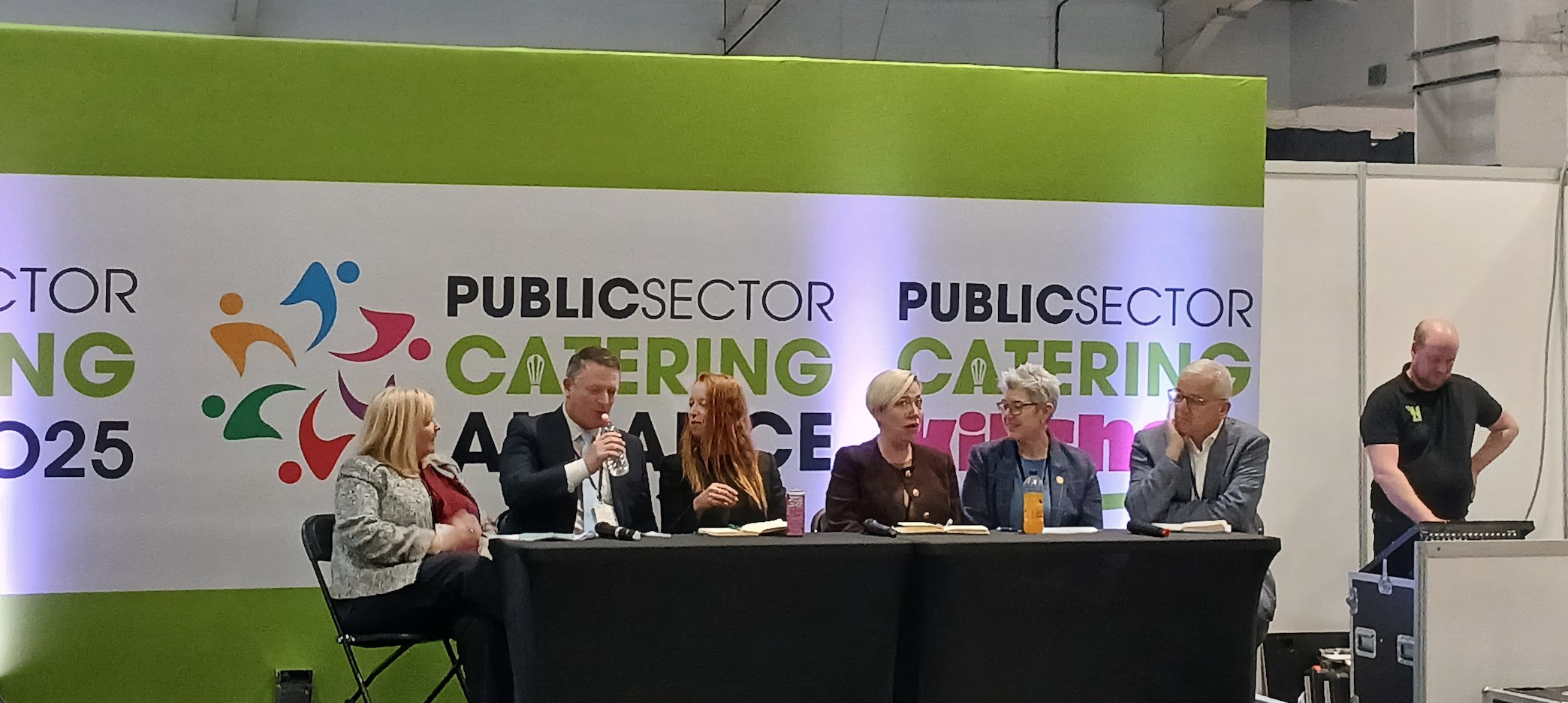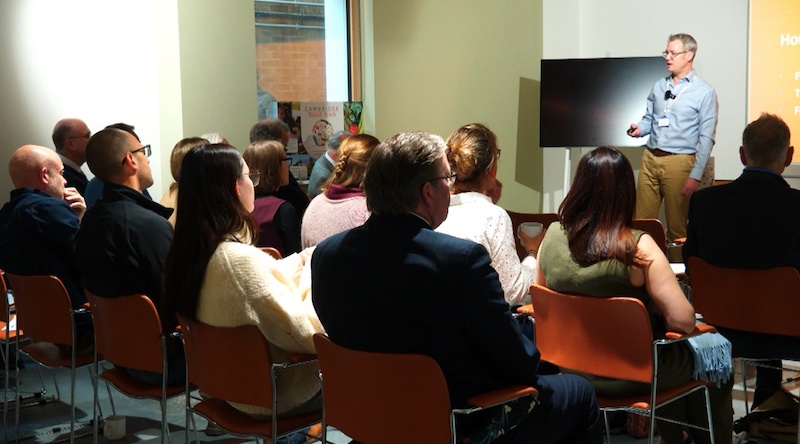Researchers and practitioners discuss place-based innovations in public food procurement at Future of Food Symposium in Birmingham.

PFG researcher Dr Lopa Saxena from the Centre for Agroecology, Water and Resilience at Coventry University convened a session on May 22, 2025 on public food procurement at the Future of Food Symposium hosted by the University of Birmingham’s Business School. The Symposium provided a great opportunity for the PFG project team to gain insight into ongoing research on public food procurement in the UK and beyond.
The session titled ‘Transforming Public Food Procurement through Place-based Innovations’ brought together three speakers who presented insights from their work – Dr Mark Stein (University of Salford, Manchester), Dr Siobhan Maderson (Aberystwyth University, Wales), and Charles Walker (Research Consultant, Action Research and Communications, Nottingham).
Not surprisingly, there was agreement among the speakers and attendees that public food procurement can play a pivotal role in transforming food systems by promoting local economies, ensuring equitable access to nutritious food, and building sustainability and resilience within these systems. However, there was less clarity on how place-based approaches can effectively lead to innovations, reform, and optimisation of public food procurement practices for a sustainable food future.

Mark presented his work on public sector approaches to sourcing local food in Sweden, Denmark, and the UK, which is also the subject matter of his co-edited book, Sustainable Food Procurement, published in 2024. He highlighted the significant differences in the approaches of the three countries, which include different understandings of what constitutes ‘local food’ and varying scales of operation. He discussed the mechanisms by which local authorities could include small-scale suppliers, such as dividing contracts, engaging in market dialogues with smaller suppliers, and providing support with logistics.
Regarding the UK context, Mark noted that there were more successful models of public food procurement for schools in the UK years ago, but these seem to have fallen by the wayside! For example, the well-resourced national programme – the Public Sector Food Procurement Initiative – was funded between 2003 and 2009. However, in recent years, local authority catering services have shrunk, and several, which strongly emphasised local and regional food, have shut down – including Cambridgeshire, Manchester, and Bath & North East Somerset, particularly noted for its innovative and dynamic food procurement initiative.
Siobhan focused on the challenges to public food procurement strategies aimed at delivering on ambitious outcomes, along with the potential and prerequisites for developing a systemic approach to public food procurement. She discussed examples from her work on the completed European Food Trails project and another ongoing project tin Wales, Cymru Wledig LPIP Rural Wales. These highlighted a fragmented and complex regulatory landscape as well as a lack of infrastructural and skills capacity at the place-level. She emphasised the crucial role of effective collaboration between national and local governments, producers, wholesalers, and other stakeholders in fully maximising the transformative potential of public food procurement.
Charles, in his presentation, discussed a “Roadmap to More Sustainable, Local Food Procurement in Nottingham and Nottinghamshire”. This project is a collaboration between the University of Nottingham, Nottingham Trent University, Nottingham City Council and Nottinghamshire County Council. The roadmap employs a twin-track approach, focusing on short-term outcomes to achieve existing shared policy aims and objectives for local sustainable food sourcing, and medium- to long-term outcomes to establish new shared policy aims and objectives, as well as to develop an action plan for implementing sustainable food procurement.
At the end of the session, Lopa and PFG Research Fellow Rosemary Venn facilitated Q&As, which led to a brief but productive discussion on the presentations from the session.
Through our own PFG research and the session at the Symposium, we have made valuable connections with researchers, practitioners, policymakers, and community members. This is helping us build our understanding of how public food procurement can be leveraged to enable a transformation of food systems. By analysing findings from various studies and collaborating with stakeholders, we aim to address procurement challenges across the four sites in our project and develop innovative solutions that enhance the efficiency and effectiveness of procurement processes.
Latest news




